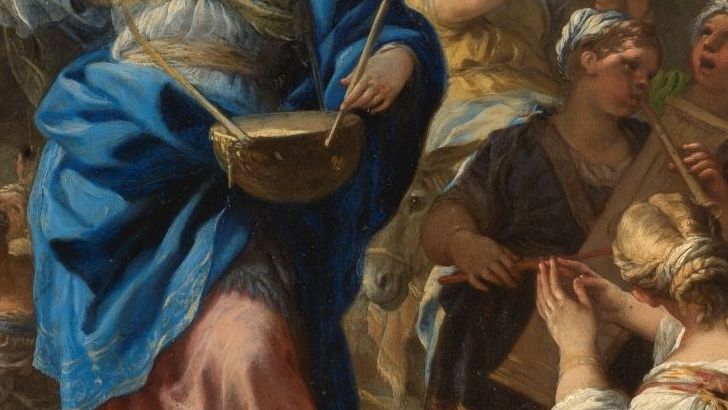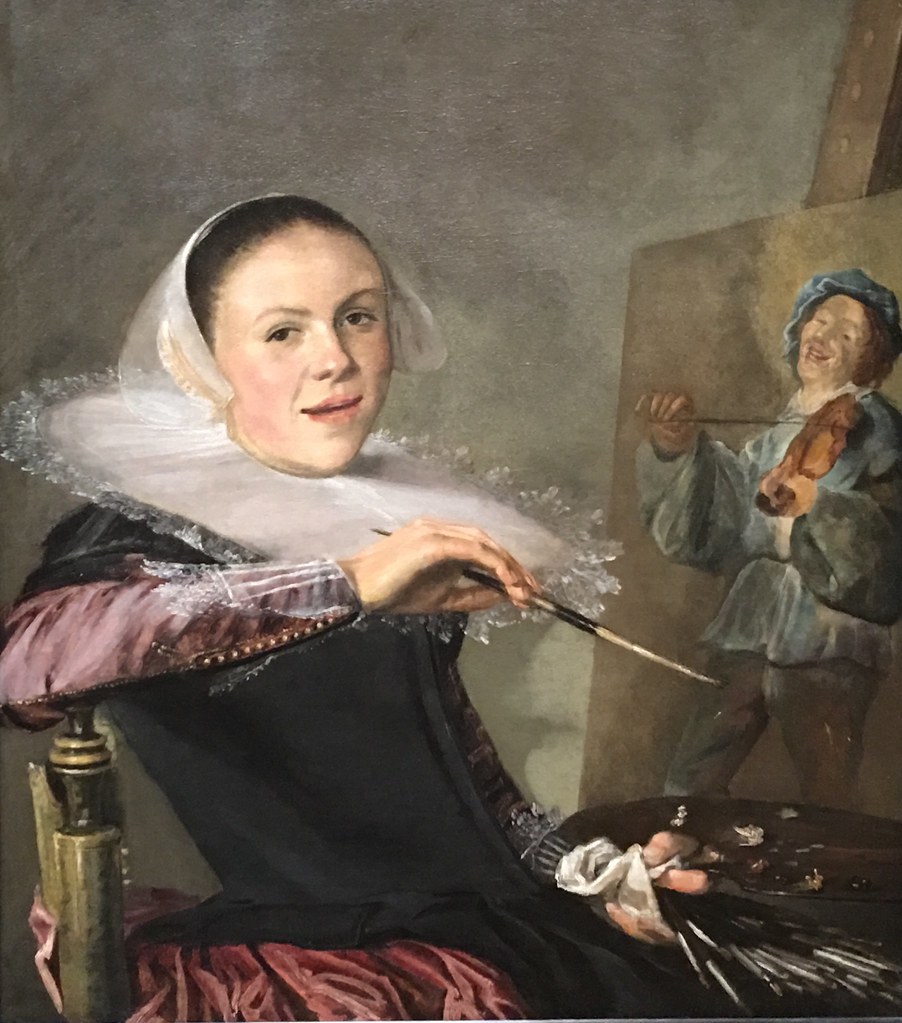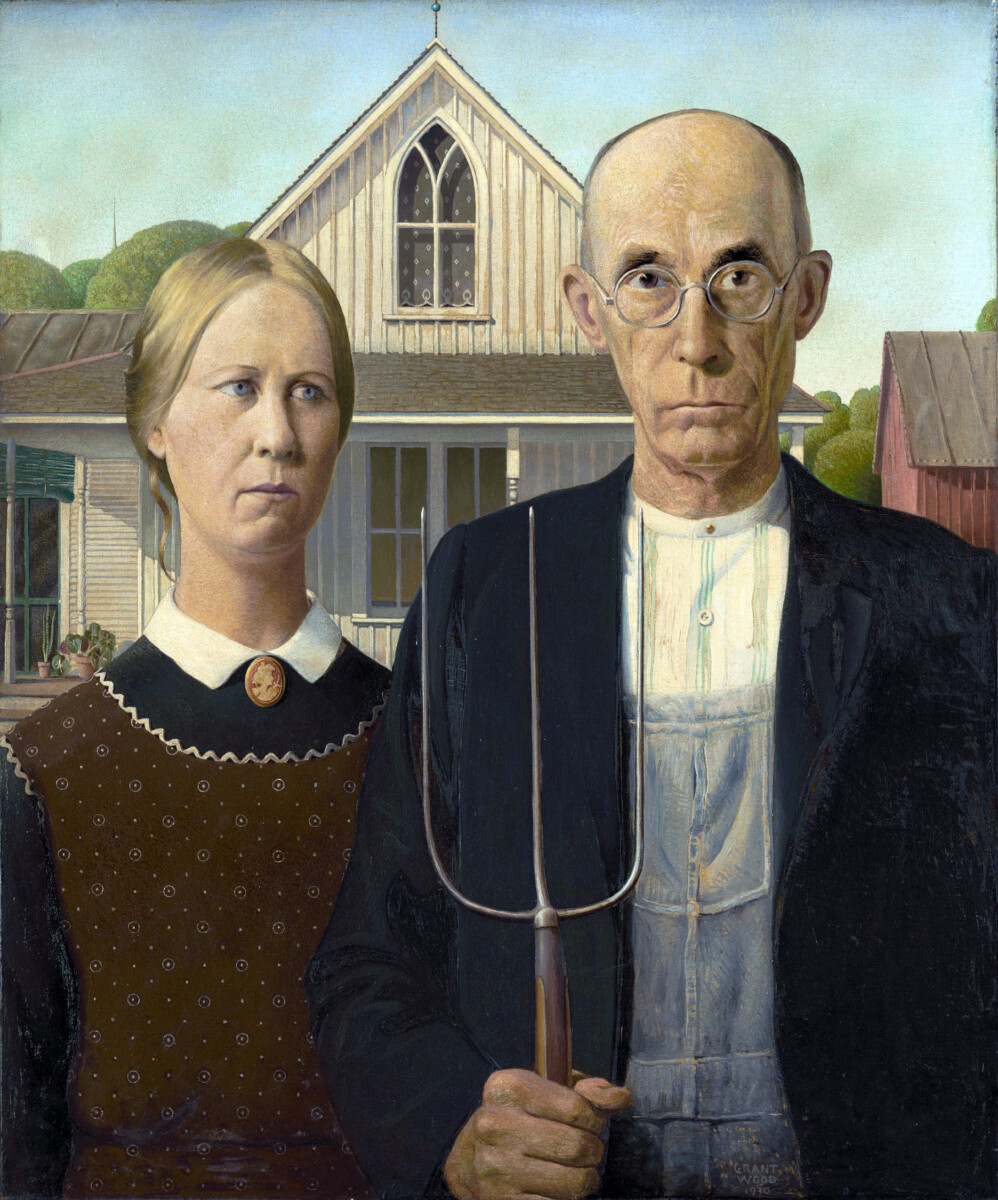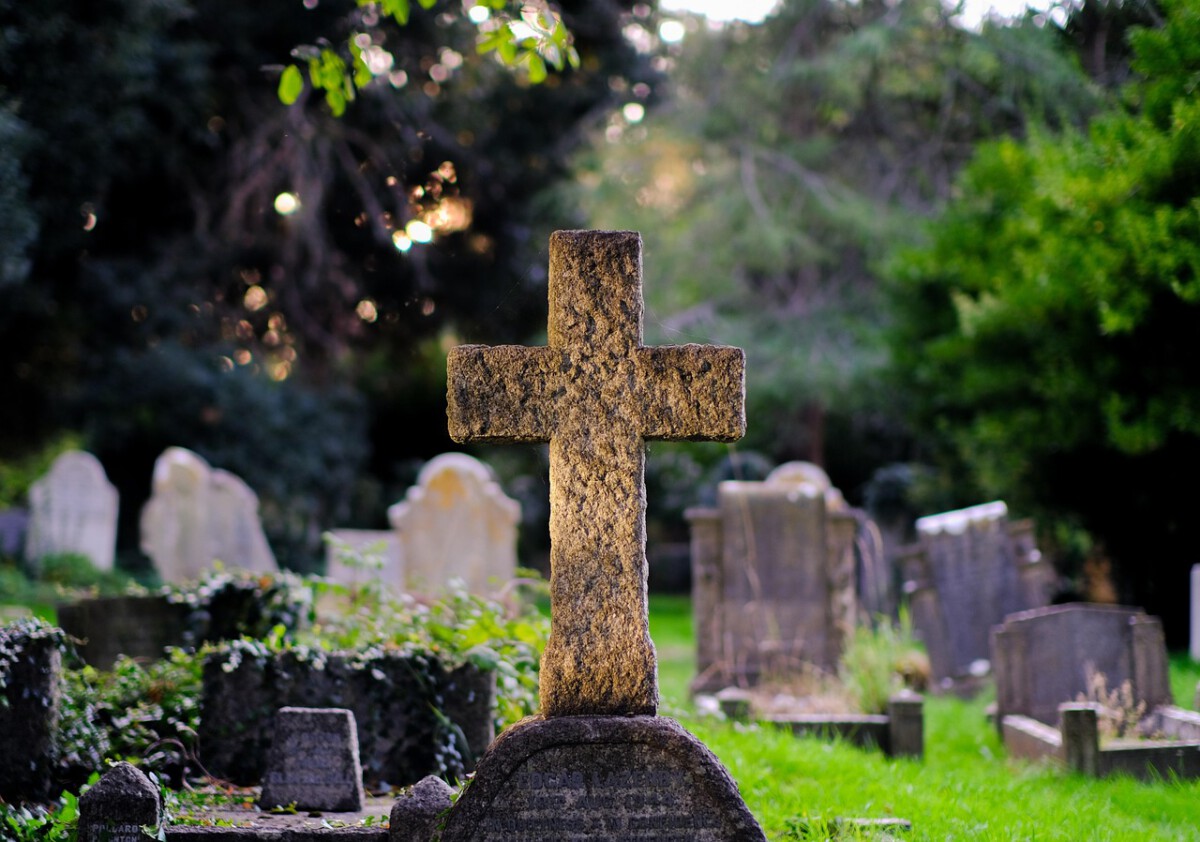Rahab the Canaanite: The Unlikely Hero of Jericho

When archaeologists excavated ancient Jericho, they made a startling discovery. A portion of the wall on the north side of the city that had not fallen stood as silent testimony to one woman’s courage. A Canaanite woman living in Jericho, Rahab is a prostitute who is also a biblical heroine. Rahab, who begins as triply marginalized (Canaanite, woman, and prostitute), moves to the center as bearer of a divine message and herald of Israel in its new land. Her house, built into the city wall, became the launching point for one of history’s most famous military conquests.
Evidence of these collapsed walls, the post-destruction burning of the city, and even a small remaining part of the casemate wall (Rahab’s house?) has been found at Tel Jericho, dating to this same period in biblical chronology. Recent archaeological analysis confirms that houses built on the rampart appear to have comprised the poor quarter of the city because they were constructed of thin walls only one brick in width. This aligns perfectly with what we’d expect from a marginalized woman’s dwelling, yet from this humble place came actions that changed the course of an entire civilization.
Deborah the Fiery Woman: When Lightning Struck Ancient Israel

Deborah was an uncommon leader during Bible times because she was a woman. God called her to a prominent position as a prophetess and judge at a time in history when He commonly appointed men to those positions. The Hebrew translation of her status as “wife of Lappidoth” reveals something extraordinary. A better understanding of the phrase, “wife of Lappidoth”, from the original Hebrew, notes this phrase can mean either “wife of Lappidoth” or “woman of torches.” Many scholars now believe Deborah was literally a “fiery woman” rather than simply someone’s wife.
Deborah is one of the major judges (meaning charismatic military leaders, rather than juridical figures) in the story of how Israel takes the land of Canaan. What makes her story even more remarkable is the timing. Deborah is a prominent figure in the biblical book of Judges, believed to have lived between 1200 and 1125 B.C.E., during a time marked by political instability and foreign oppression in ancient Israel. As a prophetess and judge, she played a critical role in guiding the Israelites, who were under the rule of Jabin, the Canaanite king. When mighty warriors hesitated, this woman stepped forward to lead a nation into battle.
The Archaeological Revolution: New Discoveries Confirm Ancient Stories

Recent findings are reshaping our understanding of these biblical women. Sales of print copies of the Holy Bible have exploded in 2024, according to a recent analysis from Circana BookScan. According to figures from the Pew Research Center, 28 percent of U.S. adults identify themselves as “religiously non-affiliated.” The massive spike in Bible sales could indicate that the number is declining, however, as sales of the Christian holy book reached 14.2 million copies in 2023, up from 9.7 million in 2023. This resurgence of interest has coincided with groundbreaking archaeological evidence supporting biblical narratives.
Offering free admission on the last Tuesday of each month, we welcomed 14,236 visitors, increasing accessibility and contributing to a total of 453,000 admissions in 2024. Visitors from 36 countries experienced the transformative power of the Bible. The Museum of the Bible’s 2024 impact report shows unprecedented engagement with biblical history, particularly stories of forgotten women. Visitors were transported to ancient Judea, where a Roman centurion, an artist, and five remarkable women came together to create a worship space dedicated “to God Jesus Christ.”
Ruth the Moabite: Foreign Loyalty That Built a Dynasty

The account of Boaz and Ruth, which took place during the time of the judges, is one of the great love stories of the Bible (against the backdrop of some interesting archaeological corroboration for the period). But directly prior to this pair was another biblical relationship, given only the briefest of mentions – the parents of Boaz. Ruth’s story transcends romance to reveal something profound about ancient attitudes toward foreigners and women’s agency. Her famous declaration of loyalty wasn’t just poetic language but a legal commitment with far-reaching consequences.
What makes Ruth’s story particularly striking is how it challenges modern assumptions about ancient gender roles. She actively pursued Boaz, initiated their relationship, and secured her family’s future through strategic action. According to the first-century New Testament book of Matthew, which gives the following genealogical record: “Salmon begot Boaz by Rahab, Boaz begot Obed by Ruth …” (Matthew 1:5; New King James Version). This foreign woman became an ancestor of King David and, according to Christian tradition, Jesus Christ himself.
Esther the Hidden Queen: Palace Politics and Divine Timing

The women of the Bible have a strong, relevant message for women today that has been lost underneath layers of traditional interpretations and the expectation that God does his most important work through men. Crucial dimensions of their lives have been muted, forgotten, or passed over. Esther’s story exemplifies this perfectly. Far from being a passive beauty queen, recent scholarship reveals her as a masterful political strategist who understood palace intrigue better than most ancient diplomats.
Her careful timing, strategic revelation of her identity, and skillful manipulation of royal protocol saved an entire people from genocide. The feast of Purim, still celebrated today, commemorates not just survival but the triumph of a woman’s wisdom over male political machinery. Esther’s influence extended far beyond her lifetime, establishing precedents for Jewish survival during persecution that would prove crucial throughout history.
Miriam the Prophetess: Leading Through Song and Rebellion

Deborah is one of five female prophets in the Hebrew Bible, along with Miriam, sister of Moses and Aaron; Huldah, who prophesies the end of Israel’s time in Canaan; the unnamed wife of Isaiah the prophet; and Noadiah, who appears during the restoration from exile. Miriam stands out as the first named prophetess, leading the Israelite women in celebration after crossing the Red Sea. But her influence went far deeper than ceremonial leadership.
She challenged Moses’ authority directly, questioning his exclusive claim to divine communication. Though she faced temporary punishment, the text implies her concerns were legitimate. Neighboring cultures also apparently considered prophecy to be open to women; far more female prophets are attested in ancient Near Eastern cuneiform literature than in the biblical texts. However, it is important to note that there may have been more female prophets in ancient Israel than just those mentioned in the Hebrew Bible. Miriam’s rebellion established that even the greatest leaders could be questioned, setting crucial precedents for accountability in leadership.
Jael the Tent-Dweller: When Hospitality Becomes Warfare

Though the presence of victory hymns is conventional in the Hebrew Bible, the Song of Deborah is unusual in that it is a hymn that celebrates a military victory of two women: Deborah, the prophetess and Jael, the warrior. Jael’s story shocks modern readers with its violence, but ancient audiences understood the complex dynamics at play. She navigated competing loyalties between her husband’s alliance with the Canaanites and her own sense of divine justice.
Her actions demonstrate how women in the ancient world could wield significant political influence despite appearing powerless. Judges 5 compares Deborah’s and Jael’s knowledge, initiative, and fortitude beside the ignorance, passivity, and anxiety of Sisera’s mother and her ladies. Judges 4-5 compares the military leader Barak’s respect of, cooperation with, and shared victory with the judge and prophet Deborah, with the military leader Sisera’s dishonoring of, death, and defeat at the hands of Jael, wife of Sisera’s ally Heber. Through decisive action in a moment of crisis, she changed the outcome of a war and secured Israel’s freedom.
Mary Magdalene: The First Evangelist

Eve, Mrs. Noah, Sarah, Hagar, Tamar, Hannah, Esther, Mary of Nazareth, Mary Magdalene and Paul and the Women of Philippi. Mary Magdalene appears in this list of forgotten women whose stories have been obscured by centuries of misinterpretation. Far from the penitent prostitute of medieval legend, recent scholarship reveals her as the first witness to the resurrection and essentially the first Christian evangelist.
CHAPTER 9: Apostle to the Apostles – Mary Magdalene captures her true significance. She was trusted with the most important message in Christian history and commissioned to deliver it to the male disciples. This “apostle to the apostles” established women’s authority in spreading the early Christian message. Her testimony became the foundation for the entire Christian faith, yet her role was systematically minimized by later church traditions.
Huldah the Prophet: Royal Advisor and Scripture Validator

When King Josiah discovered an ancient scroll in the temple, he didn’t consult the male priests or prophets available in Jerusalem. Instead, he sent his officials to Huldah, a prophetess whose wisdom was renowned throughout the kingdom. Deborah is one of five female prophets in the Hebrew Bible, along with Miriam, sister of Moses and Aaron; Huldah, who prophesies the end of Israel’s time in Canaan; the unnamed wife of Isaiah the prophet; and Noadiah, who appears during the restoration from exile. Huldah’s authentication of this scroll helped establish the biblical canon we know today.
Her prophecy regarding Judah’s future proved accurate, demonstrating that her divine authority was recognized by the highest levels of government. She operated from her home in Jerusalem’s Second Quarter, suggesting she held an established position as a recognized prophetic voice. Huldah’s validation of scripture shaped religious practice for generations, making her instrumental in preserving biblical tradition during a crucial period of reform.
The Syro-Phoenician Woman: Theological Debate and Divine Persistence

This unnamed woman engaged Jesus in the most sophisticated theological argument recorded in the Gospels, successfully changing his initial response through wit and persistence. Her challenge to Jesus about the “dogs” receiving crumbs from the master’s table wasn’t submissive pleading but clever theological reasoning that impressed even Christ himself. She understood covenant theology well enough to argue that Gentiles deserved inclusion in God’s mercy.
Her victory in this debate opened the door for Gentile inclusion in early Christianity. Recent research by historians and archaeologists has brought to light a vast amount of detail about the daily lives of our ancestors, which has enhanced our perception of the past and made it possible to write about them with conviction and credibility. Those lost women of the past, so often neglected and ignored, are stepping out of the shadows and making their voices heard. This woman’s persistent faith challenged narrow interpretations of divine grace and expanded the early church’s understanding of God’s universal love.
Modern Rediscovery: Why These Stories Matter Now

Their strong voices are silent at a time when women are searching for answers that will hold up under the pressures and challenges confronting them today. This book brings the women of the Bible into the twenty-first century by recovering their powerful message for contemporary women. Contemporary biblical scholarship is revolutionizing our understanding of these forgotten women. Advanced archaeological techniques and fresh manuscript analysis are revealing details about their lives that previous generations of scholars missed or ignored.
Twelve More Women of the Bible shares about lesser-known women and I liked that one better than the first! These women’s small group Bible studies are worth your time. The growing interest in women’s biblical studies reflects a broader cultural recognition that half of human history has been systematically overlooked. These stories offer powerful models of leadership, courage, and faith that speak directly to contemporary challenges.
Conclusion

These forgotten women didn’t just witness history – they shaped it through courage, wisdom, and unwavering faith. From Rahab’s house in Jericho’s walls to Deborah’s palm tree courthouse, from Esther’s throne room to Mary Magdalene’s empty tomb encounter, these women defied expectations and changed the world. Their stories challenge us to reconsider what leadership looks like and remind us that divine purpose often works through the most unlikely people.
Perhaps most remarkably, archaeological evidence continues to validate their historical existence and impact. In recent decades, both historical fiction and non-fiction have reached out to cover a much wider field than the traditional one of ‘great’ deeds performed by kings and generals. Interest is constantly growing in the lives and experiences of ordinary people. These women prove that ordinary people, when called by extraordinary purpose, can indeed change history forever. What would you have guessed about their true impact before reading their full stories?






